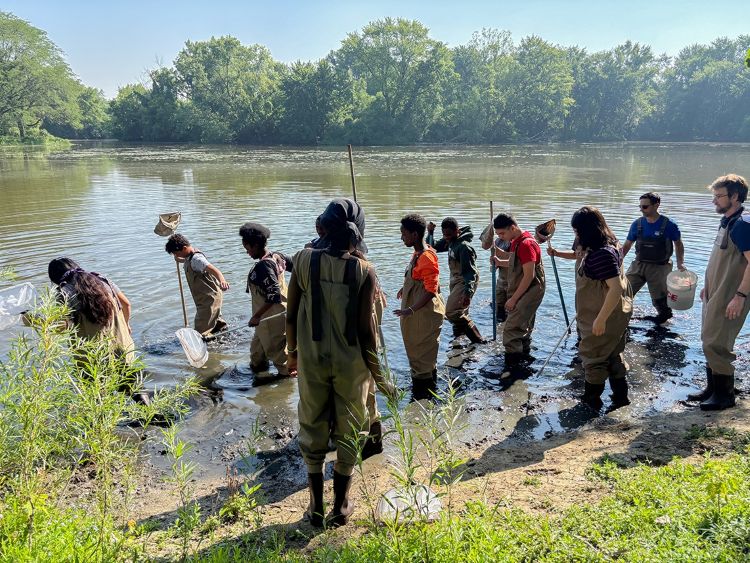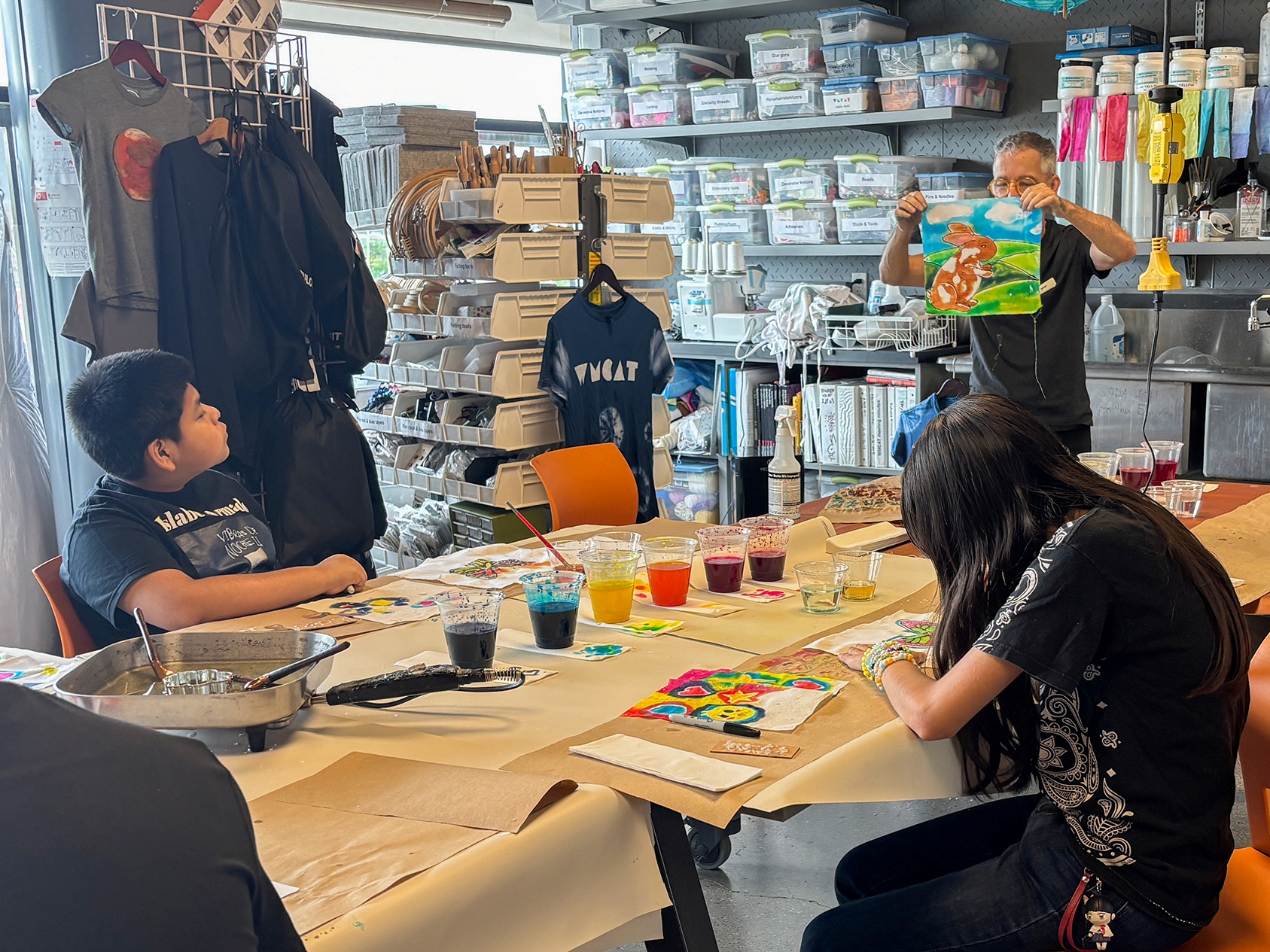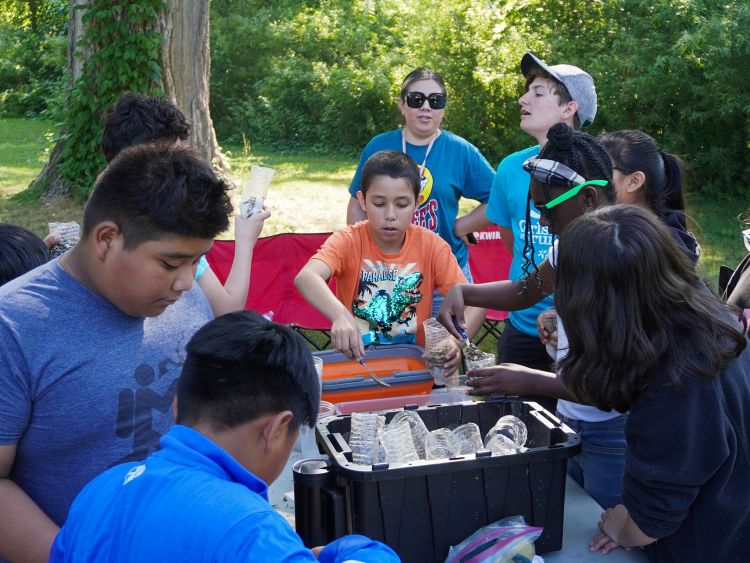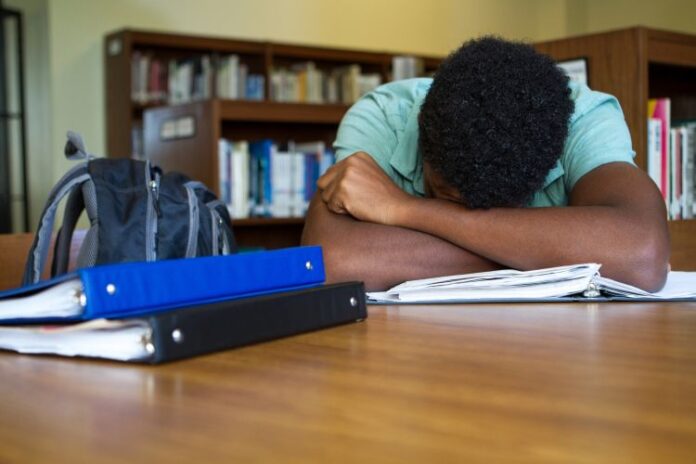Multiple districts — It’s summertime, and that means the dreaded “summer slide” is on the minds of educators everywhere.
Also known as summer learning loss, the summer slide is a phenomenon in which students regress a bit during their off months, losing ground in key areas such as math and reading.
“The summer slide occurs when scholars lose skills gained during the previous school year over summer break,” explained Sarah Ramirez, summer school project specialist with Grand Rapids Public Schools. “On average, upon return to school after summer break, scholars perform one month behind where they performed at the end of the previous school year.”
It’s not something that’s exclusive to kids, said Dan Scoville, director of human services and elementary academic services at Cedar Springs Public Schools.
“If you’ve ever taken a two-week vacation and come back to work, and you feel a little rusty, the same thing happens with kids who are out of school for nine to 10 weeks,” Scoville said, adding that while the knowledge is not lost forever, it takes students a while to “get back in that groove.”

Both Scoville and Ramirez said that, as a result of the summer slide, teachers in the fall have to spend valuable class time on reviewing old material.
And the learning loss can have a cumulative effect, because all the time spent on review just leads to more lost time during the school year.
During that time, instead of forging ahead with new material, “you’re trying to backfill and remind (students) of what they learned the previous year,” said Scoville.
Getting Creative
To offset this learning loss, districts are getting creative with their approaches to summer learning, especially as federal Elementary and Secondary School Emergency Relief dollars — which helped keep summer learning programs afloat during the COVID years — have dried up.
Cedar Springs, for instance, has reimagined its summer learning offerings and pivoted to a brand-new model following the expiration of ESSER funds. Though it still offers credit-recovery options for high-school students, the district has adopted a more engagement-based approach for younger learners. This includes family event nights featuring the Kids Read Now at-home reading program, book trades, math-based games, scavenger hunts and other activities.
At GRPS, the loss of ESSER funds forced the district to limit eligibility to its Ignite: Summer Learning program, but work is still being done to expand opportunities. Ramirez said this year, a partnership with Promise Zone led to the development of the five-day Career Discovery program for 10th- and 11th-graders. And a partnership with The Diatribe brought Poetry Empowered sessions to middle-schoolers at Ignite sites.
Through the Ignite program, GRPS offers field trips to spots like the pottery studio at the West Michigan Center for Art and Technology, which Dariana Wolf, a rising seventh-grader at Burton Elementary/Middle School, is grateful for.

Dariana said getting to explore her creative interests at WMCAT was “way more fun” than sitting in a classroom every day of summer school.
“I learn better in an environment like this,” she said. “I think if I was in a classroom we wouldn’t be working with clay or have this equipment.”
GRPS also offers its 21st Century grant-funded LOOP learning and enrichment activities, and new this year is extended-day programming for students to attend after Ignite programming ends in the afternoon.
Keeping Learning on the Forefront
So what are some ways to beat back the summer slide?
Kristen Albert, grants and intervention coordinator for Cedar Springs, thinks her district’s new approach to summer learning is a step in the right direction. She thinks the emphasis on making learning resources readily available to students and families will help offset learning loss more than the traditional summer school model did.
“It’s about continuing to keep learning on the forefront so (students) can maintain their levels rather than sliding backwards,” Albert said.
That’s something parents can help with, too, she said.
Without much extra effort, families can keep learning top of mind even when they’re far away from their school environment, just by communicating, taking in their surroundings and “experiencing the world in different ways.”
Scoville added that engagement is key.
“The more engaged we stay with our kids, the better the relationship, the better the understanding of where they’re at,” he said.
Albert noted that at-home goal-setting can also help students of all grade levels stay on track during the summer.
“It’s such an applicable tool,” she said. “The nuts-and-bolts operations of just getting things done, setting goals … helps them think through that lens when they get back to school as well.”

Ramirez, at GRPS, urged parents to stick to a schedule during the summer months.
“Even while on long breaks, kids thrive on routine,” she said. “Create a flexible daily schedule that includes a mix of fun activities, learning opportunities, and downtime. This will help keep them engaged and help prevent boredom.”
Ramirez added that outdoor activities “provide endless opportunities” for learning, and educational sensory experiences that go beyond even what’s possible in the classroom.
And, Ramirez said, it’s impossible to overstate the importance of reading outside of school.
“Try fitting a silent reading break into your daily routine or read aloud together,” she said. “Discuss the pictures and the text with each other to encourage critical reading abilities.
“You can even participate in a reading challenge. Local libraries and bookstores offer reading challenge programs that even award prizes to participants.”
‘If you’ve ever taken a two-week vacation and come back to work, and you feel a little rusty, the same thing happens with kids who are out of school for nine to10 weeks.’
— Dan Scoville, director of human services and elementary academic services at Cedar Springs Public Schools
The Kent District Library is happy to help on that front, said Monica Walen, branch outreach and program specialist.
“Learning loss over the summer is a big concern for parents, and kids’ brains work really hard during the school year and it’s important that they keep strengthening those brains outside of school, too,” said Walen. “I think that libraries are one of the best places to help combat that summer slide.”
Walen said KDL’s Summer Wonder program, which runs throughout the summer and offers reading challenges to learners of all ages, is “designed to keep kids reading and learning and exploring” from June through August.
“It is structured in the sense that there is a daily reading challenge, or writing challenge or activity, but it’s also pretty open ended, and it allows kids to hone in on what interests them,” Walen said. “Because letting kids make choices about their learning can help keep them focused.”
KDL’s bookmobile also partners with local schools to provide off-site library services during schools’ Meet Up and Eat Up programs.
KDL’s resources go beyond books, Walen said, noting that the library offers passes to check out local museums, scavenger hunts, fund STEAM activities and more.
More information about KDL activities can be found here.
Reporter Alexis Stark contributed to this story.
Read more:
• Education advocates grapple with potential closure of DOE
• Massive federal spending bill includes nationwide school voucher program









